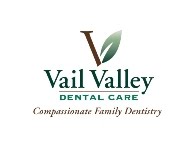1. Brushing too hard
Using a firm-bristled toothbrush and too much pressure can permanently wear away protective enamel (triggering tooth sensitivity and cavities) and cause receding gums. Instead, use a soft brush and gentle, circular scrubbing motions for two minutes at least twice a day. When buying a toothbrush, consider that compact heads move most easily around small mouths and long, flexible handles are better than short, stiff ones for reaching back molars.
Also to consider: Going electric. Because they do the hard part for you (and do it correctly), electric toothbrushes may help you remove more plaque than manual brushes. A 1997 study published in the Journal of Clinical Dentistry showed that electric toothbrushes improved periodontal health in adults with gum problems.
2. The wrong toothpaste
Some toothpastes, especially those designated "tartar control," are too abrasive. Anything that feels gritty can erode enamel and cause receding gums. Fluoride is the only ingredient you need. Dentist-recommended toothpastes include: Mentadent ($3.29), Tom's of Maine Natural Toothpaste ($4) and Sensodyne Fresh Mint ($4.39) for sensitive teeth.
3. Forgoing floss
Bacteria on your teeth can develop into plaque, the leading cause of cavities and gum disease, in 24 hours. Flossing once a day is essential for removing plaque.
4. Drinking lots of soda
Carbonated sodas—both diet and regular—contain phosphoric acid, which can erode teeth over a period of time. If you drink soda, use a straw to minimize contact with your teeth—and brush afterward.
5. Foods that stain
Tooth enamel is like a sponge. Anything that leaves a stain in a cup or on a plate (for example, coffee, tea, colas, marinara sauce, soy sauce, red wine) will give teeth a dull, yellowish color over time. Ask your dentist about laser whitening, bleaching or Prophy Power, a new in-office procedure in which sodium bicarbonate (a gentle whitening agent) mixes with a powerful jet of water to lift stains without removing enamel.
If you want to use a whitening toothpaste, consider that they can brighten teeth a few shades, but they tend to be harsh on the enamel.
6. Frequent snacking
Every time you eat something, especially if it's a sugary or starchy food, the bacteria that normally live in your mouth create acids to break down the food. But these acids can also attack teeth, leading to decay. Eating raw, firm fruits and vegetables (like apples and carrots) with and after meals can help. (Many dental experts consider such foods to be nature's toothbrushes because of their detergent-like effect on plaque.)
Chewing sugarless gum after eating can also help prevent cavities by increasing saliva flow, which helps wash away cavity-causing bacteria. Look for gum sweetened with Xylitol. Researchers at the University of Minnesota in Minneapolis found gum containing the natural sweetener temporarily inhibited bacterial growth which leads to decay.
7. Using teeth as tools
Ripping open potato-chip bags and loosening knots with your teeth can lead to cracks and breaks and damage fillings and existing dental work. Also risky: Chewing ice cubes, frozen candy bars or hard candies.
8. Neglecting problems
Bleeding gums and chronic bad breath are hallmarks of gum disease. To fight bad breath, drink enough water to keep your mouth moist (water and saliva help control bacteria) and remove excess bacteria with a tongue scraper. To prevent bleeding gums, brush and floss daily. If your symptoms persistent longer than a few days, consult your dentist.
9. Avoiding the dentist
You're probably familiar with the advice that you should schedule twice-yearly cleanings—but that's actually an arbitrary recommendation. We now know that some people may actually need to see a dentist every three months to keep gum disease at bay.
10. Ignoring your lips
No matter how great your dental health, your smile still won't shine if it's framed by dry, cracked lips. Lip skin, which is thinner than other skin on the body, is prone to moisture loss, environmental damage and changes due to aging. Using a moisturizing balm daily will help keep lips soft and smooth.
View the original article at: http://www.origin.shape.com/health/family_health/dental_health/10_bad_dental_habits_to_break


No comments:
Post a Comment